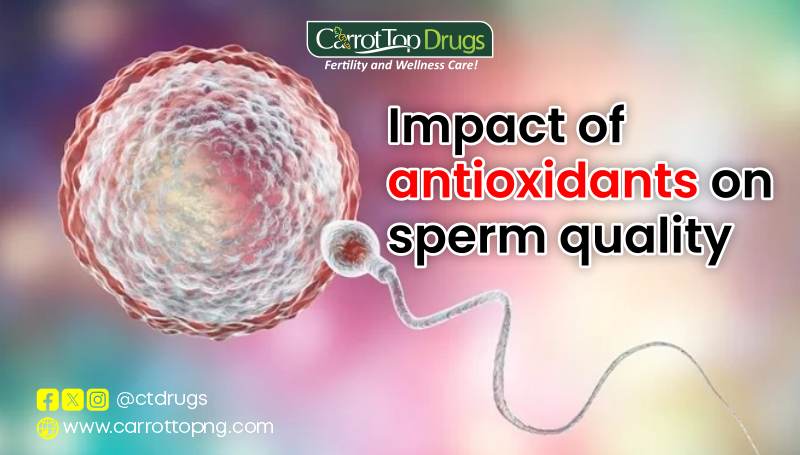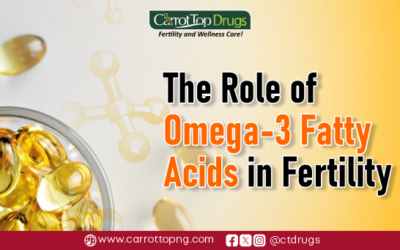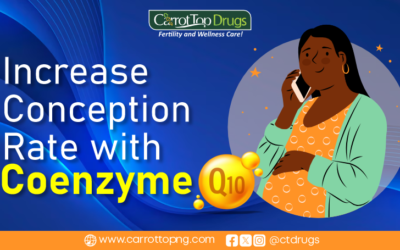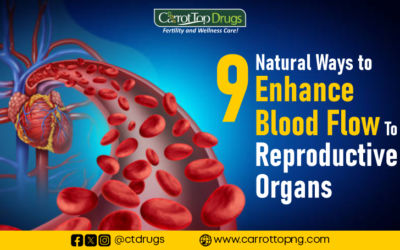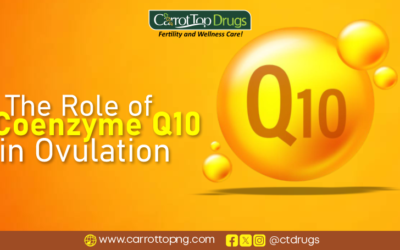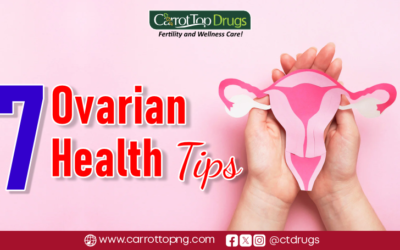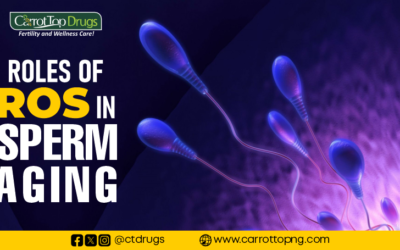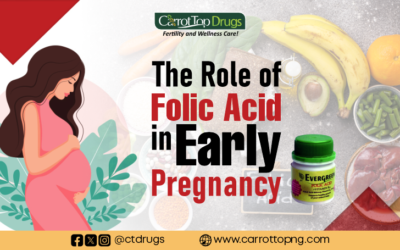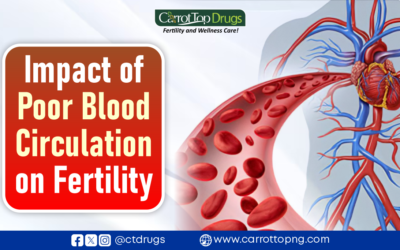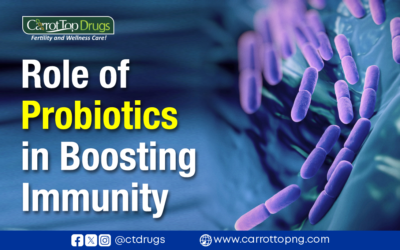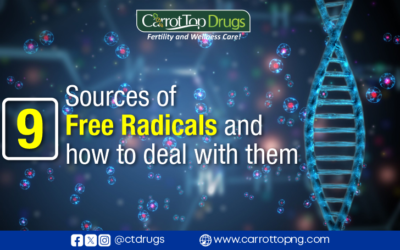Introduction
Antioxidants are compounds that help protect cells from damage caused by free radicals. Free radicals are unstable molecules that can harm cells and contribute to various health issues. These compounds play a crucial role in maintaining overall health by neutralizing free radicals and reducing oxidative stress. In this article, we will explore the impact of antioxidants on sperm quality, focusing on their role in maintaining male reproductive health and fertility.
Factors Affecting Sperm Quality
Lifestyle Factors:
Certain lifestyle choices such as smoking, excessive alcohol consumption, drug use, and poor diet can negatively impact sperm quality. These habits can lead to increased oxidative stress, hormonal imbalances, and nutritional deficiencies, all of which can affect sperm production and function.
Age:
Advanced paternal age has been associated with decreased sperm quality, including reduced sperm count and motility. As men age, the quality of their sperm may decline due to factors such as cumulative exposure to environmental toxins and changes in hormone levels.
Health Conditions:
Medical conditions such as obesity, diabetes, hypertension, and sexually transmitted infections (STIs) can affect sperm quality. These conditions may interfere with hormonal regulation, sperm production, and the overall health of reproductive organs.
Genetics:
Genetic factors can influence sperm quality, including inherited disorders that affect sperm production or function. Certain genetic mutations or chromosomal abnormalities may lead to infertility or increased risk of passing on genetic conditions to offspring.
Environmental Exposures:
Exposure to environmental toxins, pollutants, and chemicals can have detrimental effects on sperm quality. Pesticides, heavy metals, industrial chemicals, and radiation are examples of environmental factors that may impair sperm production, motility, and DNA integrity.
Stress:
Chronic stress can disrupt hormonal balance and affect sperm production. High levels of stress hormones such as cortisol may impair sperm quality and reduce fertility. Additionally, stress-related behaviors such as poor sleep quality and unhealthy coping mechanisms can further contribute to fertility issues.
Heat Exposure:
Prolonged exposure to high temperatures, such as in hot tubs, saunas, or occupational settings with elevated temperatures, can temporarily decrease sperm production and motility. Heat stress on the testes can impair sperm quality and affect fertility.
Medications and Treatments:
Certain medications, such as chemotherapy drugs, antihypertensives, and antidepressants, may have adverse effects on sperm quality. Additionally, treatments for medical conditions such as cancer or autoimmune disorders can impact fertility by affecting sperm production or function.
Importance of Sperm Quality For Fertility
Fertilization:
High-quality sperm are essential for fertilizing a woman’s egg and initiating the process of conception. Sperm must be capable of swimming through the female reproductive tract, penetrating the egg’s outer layer, and delivering genetic material for fertilization to occur successfully.
Embryo Development:
Sperm quality influences the health and viability of the resulting embryo. Sperm with optimal morphology (shape and structure) and DNA integrity are more likely to contribute to healthy embryo development, reducing the risk of genetic abnormalities and pregnancy complications.
Implantation:
After fertilization, the embryo must implant itself into the lining of the uterus for pregnancy to proceed. Sperm quality can affect the ability of the embryo to implant successfully, as well as the likelihood of miscarriage or implantation failure.
Healthy Pregnancy:
High-quality sperm contribute to a healthy pregnancy by ensuring the genetic integrity of the developing fetus. Sperm carrying damaged DNA or chromosomal abnormalities may increase the risk of birth defects, developmental disorders, and pregnancy complications.
Male Fertility:
Sperm quality is a key determinant of male fertility, as it directly impacts a man’s ability to father a child. Men with poor sperm quality may experience difficulties conceiving with their partners, leading to infertility issues and the need for medical intervention.
Reproductive Success:
Optimal sperm quality is associated with increased chances of reproductive success and achieving pregnancy. Healthy sperm with high motility and normal morphology are more likely to reach and fertilize an egg, resulting in successful conception and a higher likelihood of live birth.
Quality of Offspring:
The quality of sperm can influence the health and well-being of future generations. Sperm carrying damaged DNA or genetic mutations may increase the risk of inherited disorders or developmental abnormalities in offspring.
How Antioxidants Combat Oxidative Stress
Neutralizing Free Radicals:
One of the primary mechanisms by which antioxidants combat oxidative stress is by neutralizing free radicals. Free radicals are unstable molecules that can damage cells, including sperm cells, by oxidizing their components. Antioxidants donate electrons to free radicals, stabilizing them and preventing them from causing further damage. This process helps protect sperm cells from oxidative stress and maintains their integrity, ultimately contributing to the impact of antioxidants on sperm quality.
Protecting Cellular Structures:
Antioxidants play a crucial role in protecting cellular structures, including the membranes of sperm cells, from oxidative damage. Lipid peroxidation, a process initiated by free radicals, can lead to the degradation of cell membranes and impair sperm function. Antioxidants such as vitamin E and selenium help prevent lipid peroxidation by scavenging free radicals and preserving the structural integrity of sperm membranes. By maintaining the health of cellular structures, antioxidants support the impact of antioxidants on sperm quality.
Regenerating Other Antioxidants:
Some antioxidants have the ability to regenerate other antioxidants, amplifying their protective effects against oxidative stress. For example, vitamin C can regenerate vitamin E, allowing it to continue neutralizing free radicals and maintaining cellular health. By working together synergistically, antioxidants form a network of protection against oxidative damage, enhancing their collective impact on sperm quality.
Enhancing Enzymatic Defense Systems:
Antioxidants also play a role in enhancing enzymatic defense systems that help detoxify free radicals and reduce oxidative stress. Enzymes such as superoxide dismutase (SOD) and catalase rely on cofactors such as zinc and copper to neutralize reactive oxygen species (ROS) and prevent cellular damage. Antioxidants like zinc and copper support the activity of these enzymes, ensuring efficient removal of free radicals and minimizing their impact on sperm quality.
Modulating Gene Expression:
Emerging research suggests that antioxidants may modulate gene expression related to oxidative stress and cellular protection. Certain antioxidants have been found to activate genes involved in antioxidant defense pathways, enhancing the cell’s ability to cope with oxidative stress. By regulating gene expression, antioxidants help optimize cellular function and minimize the impact of oxidative stress on sperm quality.
Antioxidants That Are Beneficial To Sperm Health
Vitamin C:
This powerful antioxidant is known for its ability to neutralize free radicals and reduce oxidative stress. Vitamin C helps protect sperm cells from damage caused by oxidative stress, thereby supporting their overall health and function. Studies have shown that vitamin C supplementation can improve sperm quality parameters such as motility and morphology, highlighting its positive impact on sperm quality.
Vitamin E:
Another essential antioxidant for sperm health, vitamin E helps protect sperm cell membranes from oxidative damage. By scavenging free radicals and preventing lipid peroxidation, vitamin E preserves the structural integrity of sperm cells and maintains their viability. Research suggests that vitamin E supplementation can enhance sperm parameters and fertility outcomes, underscoring its significant impact on sperm quality.
Selenium:
Selenium is a trace mineral that acts as a cofactor for antioxidant enzymes such as glutathione peroxidase. This enzyme plays a crucial role in neutralizing hydrogen peroxide and other reactive oxygen species (ROS) that can damage sperm cells. Selenium deficiency has been associated with poor sperm quality and male infertility, highlighting its importance for supporting the impact of antioxidants on sperm quality.
Zinc:
Zinc is essential for DNA synthesis, cell division, and sperm maturation, making it a vital nutrient for male reproductive health. As an antioxidant, zinc helps protect sperm DNA from oxidative damage and promotes proper sperm development. Studies have shown that zinc supplementation can improve sperm quality parameters and enhance fertility, emphasizing its beneficial impact on sperm quality.
Lycopene:
Lycopene is a potent antioxidant found in tomatoes, watermelon, and other red-colored fruits and vegetables. It has been studied for its potential role in improving sperm parameters such as motility and morphology. Lycopene’s antioxidant properties help protect sperm cells from oxidative stress and may contribute to better sperm health and fertility outcomes, demonstrating its positive impact on sperm quality.
Coenzyme Q10 (CoQ10):
CoQ10 is a powerful antioxidant that plays a crucial role in cellular energy production and antioxidant defense. It helps protect sperm cells from oxidative damage and supports mitochondrial function, which is essential for sperm motility and viability. Research suggests that CoQ10 supplementation can improve sperm quality and fertility in men with impaired sperm parameters, indicating its significant impact on sperm quality.
Research Evidence on the Impact of Antioxidants on Sperm Quality
A study done by Fotios Dimitriadis et al revealed that more than 80 million couples worldwide complain of infertility. Male infertility is a controversial issue worldwide for several, multi-factorial reasons. Further, 8 to 12% of all couples suffer from infertility, with a growing tendency. In this context, male infertility occurs in 30–50% of cases.
One meta-analysis, published in the journal Andrologia, reviewed multiple clinical trials examining the effects of antioxidant supplementation on sperm quality. The analysis found that antioxidant supplementation significantly improved sperm count, motility, and morphology in men with infertility issues. These findings underscore the positive impact of antioxidants on sperm quality and suggest that supplementation may be a valuable adjunct therapy for men seeking to enhance their fertility.
Furthermore, research has highlighted the role of specific antioxidants, such as vitamin C, vitamin E, selenium, and zinc, in supporting sperm health. For example, a randomized controlled trial published in Fertility and Sterility investigated the effects of combined antioxidant therapy on sperm parameters in infertile men. The study found that supplementation with a combination of antioxidants led to significant improvements in sperm motility and morphology compared to placebo, further demonstrating the beneficial impact of antioxidants on sperm quality.
Moreover, research has explored the potential synergistic effects of combining antioxidants with lifestyle interventions to improve sperm quality. For example, a study published in the Journal of Urology examined the impact of antioxidant supplementation combined with dietary and lifestyle modifications on sperm parameters in men with idiopathic infertility. The findings revealed that the combination therapy resulted in significant improvements in sperm count, motility, and morphology, highlighting the importance of comprehensive approaches to enhancing male fertility.
Foods Rich In Antioxidants
Berries: Berries such as blueberries, strawberries, raspberries, and blackberries are excellent sources of antioxidants, including flavonoids, anthocyanins, and vitamin C.
Dark Chocolate: Dark chocolate contains high levels of flavonoids, particularly a type called cocoa flavanols, which have potent antioxidant properties.
Nuts: Various nuts, including almonds, walnuts, and pecans, are rich in antioxidants such as vitamin E, selenium, and polyphenols.
Leafy Greens: Leafy green vegetables like spinach, kale, and Swiss chard are packed with antioxidants such as vitamin C, vitamin E, and beta-carotene.
Colorful Vegetables: Vibrantly colored vegetables like bell peppers, carrots, and tomatoes are rich in antioxidants, including vitamin C, lycopene, and beta-carotene.
Fruits: Apart from berries, fruits like oranges, grapes, kiwi, and mangoes are also abundant in antioxidants such as vitamin C and flavonoids.
Seeds: Seeds such as chia seeds, flaxseeds, and pumpkin seeds are rich in antioxidants, fiber, and healthy fats.
Whole Grains: Whole grains like quinoa, brown rice, and oats contain antioxidants such as selenium, vitamin E, and phenolic compounds.
Legumes: Beans, lentils, and chickpeas are excellent sources of antioxidants, fiber, and protein, contributing to overall health and well-being.
Herbs and Spices: Certain herbs and spices, including cinnamon, turmeric, ginger, and oregano, are packed with antioxidants and have been used for their medicinal properties for centuries.
Antioxidants Supplements
Antioxidant supplements come in various forms, including capsules, tablets, powders, and liquids, and are available over-the-counter or by prescription. Common antioxidants found in supplements include vitamin C, vitamin E, selenium, zinc, coenzyme Q10 (CoQ10), and alpha-lipoic acid. Our Evergreen Formular for Men and Evergreen Motility for Men are supplements that contain all these antioxidants.
Conclusion
In conclusion, the impact of antioxidants on sperm quality is undeniable, with research consistently demonstrating their beneficial effects on male reproductive health. By incorporating antioxidant-rich foods, making lifestyle modifications, and taking our Evergreen Formular for Men and Evergreen Motility for Men, individuals can take proactive steps to maintain optimal sperm health and enhance their fertility potential. Prioritizing overall health and well-being is key to supporting reproductive function and achieving desired fertility outcomes.
FAQs
Q. Can antioxidants improve sperm quality?
- Yes, antioxidants can improve sperm quality by reducing oxidative stress and protecting sperm cells from damage caused by free radicals.
Q. What are the best sources of antioxidants for promoting sperm health?
- Berries, nuts, leafy greens, colorful vegetables, fruits, seeds, whole grains, legumes, and herbs/spices are excellent dietary sources of antioxidants for supporting sperm health.
Q. Are antioxidant supplements safe to use for improving sperm quality?
- Yes, when used responsibly and under the guidance of a healthcare professional, antioxidant supplements can be safe and effective for improving sperm quality.
Q. How long does it take to see improvements in sperm quality with antioxidant supplementation?
- The timeframe for seeing improvements in sperm quality with antioxidant supplementation may vary, but some individuals may experience noticeable improvements within a few months.
Q. Can antioxidants help with male infertility?
Yes, antioxidants can help with male infertility by supporting sperm health and function, thereby improving fertility outcomes and increasing the chances of conception.Antioxidants on Sperm Quality

